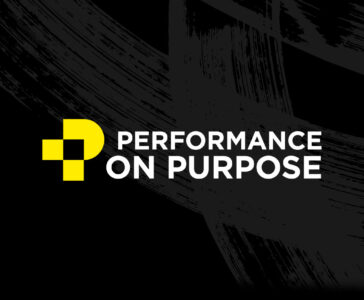The basis for massive industry disruption is when that industry is no longer capable of satisfying the needs of its community.
Calling out the Architecture, Engineering and Construction Industry
At the Construction Institutes Visionaries Forum 2015, there was a consistent and clear theme: The way we go about designing and building our homes, our cities and the environments we live and work is broken.Which raises the question, if you are a leader in this industry, what part do you want to play in creating what’s next?
Patrick MacLeamy, Chief Executive Officer at HOK began by declaring that the AEC industry has failed to deliver what it promised, high-quality environments to live and work for everyone. What exists instead is a way to approach the built environment that is fraught with inefficiencies, corruption, that is slow, expensive and generates huge amounts of waste. The result of this condition is that high-quality environments are built for the few who can afford it (only 2% of buildings built are built with an architect) and low-quality, insufficient solutions are built for those that can’t.
The environments we build are so complex; we need to think of holistic new ways of approaching the problem, Says Patrick MacLeamy.
Patrick noted the absurdity of the idea that someone who buys a building has two separate contracts, one with the architect and one with the construction company. This creates a destructive dynamic resulting in Architects practicing defensive architecture to try and avoid being blamed for issues in construction, and construction companies practicing gotcha construction to try and deflect blame for delays and cost overruns to the architect. Both practices result in an almost unavoidable final phase of construction, litigation.
The re-design is already underway
The issues don’t just lie with how a building gets designed and built, but before either of those processes begin. Chris LaRosa, Product Manager, Flux, Google[X] said, “based on how things get built now, we cannot keep up with population growth and the demand for urban development.” When he and his colleagues at Google[X] stepped back to look at the problem, they noted the permitting and zoning process was adding huge amounts of time and unneeded bureaucracy to the process of getting things approved to be built.
based on how things get built now, we cannot keep up with population growth and the demand for urban development.
Flux has been able to take the complex land development code and zoning envelope information among other data sources, clean them up and apply them to an interface that allows developers to see ideal locations for developing a property based on their unique parameters real-time on a 3D map. Starting with Austin TX, a developer can not only find suitable locations, but the system can actually design a rough sketch of the building based on the chosen location, taking into consideration the zoning envelope, even how sunlight will effect the location through the day. And if the developer wants to see what it might look like at another location, they can just click and the design re-formulates real-time based on the chosen location. This solution alone could save months, if not years.
The examples are many, and some others discussed at the event were:
- Drones: Organizations are experimenting with the use of drones to be able to measure and document construction progress real-time
- Additive Manufacturing: Instead of machining parts out of large pieces of material that result in many steps and a lot of waste, companies are using 3D metal printing and other methods that have zero waste and allow for more organic and efficient designs. For example, the first 5-story building was just completed in China where the walls were 3D printed on site using construction waste and reinforced concrete
- Datafication of buildings: Using technology to understand utilization of a building, new or existing that allows for real-time optimization of resource consumption based on the patterns of its inhabitants
These examples provide evidence that the disruption of this industries status quo won’t come with a big implosion, but from the deliberate and quiet replacement of what currently exists piece by piece.
Deny, Defend, or Create
As organizational leaders in this industry, the question we have to ask ourselves is what role will we play in the creation of what’s next? I see three options:
- Deny any of this change is real, needed or wanted
– Requires no effort because nothing needs to change, however the cost of this choice is organizational suicide, and probably a quicker one than you ever imagined - Stand and fight to defend the way it is
– Takes some energy and focus to get others collude with you to try and preserve what’s so, however it only prolongs, and painfully so, the inevitable irrelevance of your organization - Tear down what isn’t working and make room for something new
– Takes a herculean amount of effort, courage and vision, however will put your organization in the drivers seat of it’s own future and you would be doing humanity a service as a result.
What will you stand for?
The solution that will put your organization or industry out of business has already been invented. Instead of fighting it, why not join in and encourage its success?
Based on conversations I’ve had with leaders of Connecticut-based AEC organizations, I believe there are those with the courage and commitment to take on generating a future where this industry can fulfill it’s promise of high-quality environments to live and work for everyone. If you think you are one of them, what are you going to stop doing that isn’t making a difference? And what are you going to provide that will?
About Brent
Brent works with leaders to design futures worth fighting for. A partner at Fathom, he champions an approach to strategic planning, employee engagement, leadership succession and market differentiation that prioritizes people and relationships. As a result, his clients don’t simply plan their futures, they bring them to life through the energy of organization-wide involvement in, and commitment to, generating valuable businesses that matter.
Want more from Fathom?
Sign up to receive updates about our articles.


